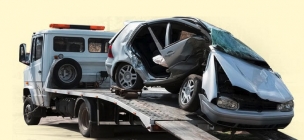The Journey of a Car from Road to Recycling
Sep 27, 2024 12:37
Ever wondered what happens to your car after it leaves the road for good? For eco-conscious drivers and sustainability advocates, understanding the life cycle of a vehicle is crucial. Not only does it help in making informed decisions, but it also promotes responsible consumption and disposal. In this post, we'll take you through the entire process, from the moment a car is manufactured to its final stages of recycling, and explore the importance of proper car disposal.
The Lifecycle of a Car
From Concept to Creation
The life of a car begins long before it hits the showroom floor. The design and manufacturing process involves numerous stages, including concept development, prototyping, testing, and mass production. Each of these stages has an environmental impact, from the raw materials extracted to the energy consumed in manufacturing.
However, the auto industry is increasingly adopting sustainable practices. For example, manufacturers are now opting for recycled materials and energy-efficient production methods. Electric vehicles (EVs) are also becoming more popular, offering a cleaner alternative to traditional petrol and diesel cars.
The Golden Years on the Road
Once a car is on the road, its environmental footprint continues to grow. Fuel consumption, emissions, and regular maintenance all contribute to its carbon footprint. This is why fuel-efficient and low-emission vehicles are more important than ever for eco-conscious drivers.
Owners should also consider regular maintenance to keep their vehicles running efficiently. Proper tire inflation, timely oil changes, and regular engine check-ups can significantly reduce a car's environmental impact.
The End of the Road
Eventually, every car reaches the end of its roadworthy life. Whether due to age, wear and tear, or obsolescence, the time comes for it to be taken off the road. At this stage, the focus shifts to responsible disposal and recycling.
Road to Recycling
Dismantling
The first step in car recycling is dismantling. Skilled technicians remove valuable parts like the engine, transmission, and other components that can be reused or sold. This not only reduces waste but also provides affordable parts for other vehicles.
Shredding
Next, the car body is shredded into small pieces. This process separates the metal from other materials like plastic and rubber. Advanced shredders can even capture and recycle up to 95% of a vehicle's material, making the process highly efficient.
Material Recovery
The final step is material recovery. The shredded metal is melted down and repurposed, often used to manufacture new vehicles. Other materials like plastics and rubber are also recycled, contributing to a circular economy.
Technological Advancements
Thanks to technological advancements, the car recycling process is becoming more efficient and eco-friendly. Automated systems and AI technologies are making it easier to sort and recycle materials, reducing both time and cost.
The Importance of Proper Car Disposal
Environmental Benefits
Proper car disposal offers numerous environmental benefits. Recycling reduces the need for new raw materials, conserving natural resources and reducing pollution. It also prevents hazardous substances like oil and coolant from contaminating the environment.
Legal Requirements
In many places, proper car disposal is not just a good practice; it's a legal requirement. Regulations mandate that end-of-life vehicles be recycled or disposed of in an environmentally friendly manner. Failure to comply can result in hefty fines and legal repercussions.
Consumer Tips
For consumers, ensuring responsible car disposal is simpler than you might think. Many recycling centres and scrap yards offer free or low-cost disposal services. Always check that the facility adheres to environmental regulations and provides a certificate of destruction.
Case Studies and Success Stories
Ford's Green Initiative
Ford Motor Company has been a pioneer in sustainable automotive practices. Their innovative recycling program has enabled the recovery and reuse of millions of kilograms of scrap metal, significantly reducing landfill waste.
Tesla's Closed-Loop System
Tesla is another leader in sustainability. Their closed-loop battery recycling system ensures that materials from old batteries are recovered and reused in new ones, minimising waste and promoting resource efficiency.
Local Heroes
Closer to home, Scrap Cars Removal's Cash for Cars service in Sydney is making waves by helping locals recycle their scrap cars. Their eco-friendly approach ensures that end-of-life vehicles are disposed of responsibly, benefiting both the community and the environment.
Future of Car Recycling and Sustainability in the Automotive Industry
Emerging Trends
The future of car recycling looks promising, with emerging trends like AI-driven sorting systems and biodegradable car parts. These innovations are set to revolutionize the industry, making recycling more efficient and less harmful to the environment.
Individual Contributions
Individuals can also make a significant impact. Opting for fuel-efficient or electric vehicles, maintaining cars properly, and choosing to recycle at the end of a vehicle's life are all ways to contribute to a more sustainable automotive industry.
Business Contributions
Businesses can lead the way by adopting green practices, investing in sustainable technologies, and educating consumers about the importance of responsible car disposal. Together, we can drive the automotive industry toward a greener future.
Conclusion
The journey of a car from the road to recycling is a fascinating and important process. Understanding this lifecycle helps eco-conscious drivers and sustainability advocates make informed decisions. By considering the environmental impact at each stage, we can promote responsible consumption and disposal in the automotive industry.
If you're interested in recycling your end-of-life vehicle, Scrap Cars Removal's Cash for Cars service has been helping Sydneysiders recycle their scrap cars responsibly. Make a choice that benefits both you and the planet.






























































